Vehicle Warning Lights
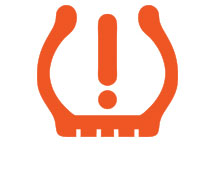
Indicates the tire pressure monitoring system has found a tire with low air pressure or there may be a sensor malfunction. Check tire pressure. Some vehicles will allow manual reset of TPMS warning light and others will require professional diagnosis. Refer to owner’s manual.
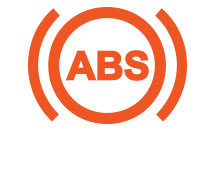
Indicates that the Anti-lock Brake computer has set a code and needs professional diagnosis.

If this light stays illuminated after starting it indicates that the vehicle has found a fault in the airbag system and the computer has set a code. Professional repair of the supplemental restraint system is highly recommended.
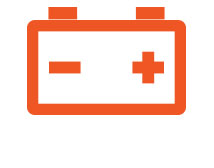
Indicates voltage level is below normal level and the vehicle’s charging system is not functioning properly. Check battery terminals, alternator belt, and battery condition.
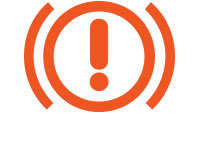
Indicates one of three possible conditions: parking brake is on; problem with the braking system/brake fluid is low, or ABS problem. Check brake fluid and make sure the parking brake is fully released. If the problem is in the ABS system, it may need a professional diagnosis.
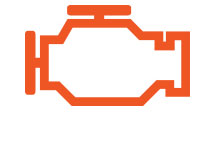
Indicates the engine computer has set a Diagnostic Trouble Code (DTC). Usually requires diagnosis with a professional scan tool.
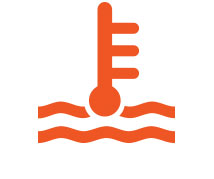
Indicates temperature has exceeded normal limits. Check coolant level, fan operation, radiator cap, coolant leaks.
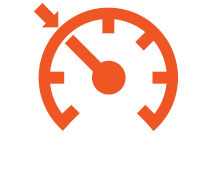
Indicates that cruise control is set during driving.

The diesel exhaust fluid reservoir is low on fluid.
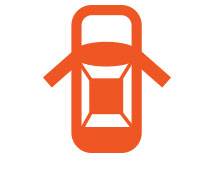
Indicates that a door (including hood and trunk) is not closed. Open and close all doors, including hood and trunk. If vehicle is left in this condition overnight it can drain the battery.

The diesel exhaust particulate filter has failed its test and needs to be serviced.
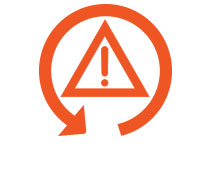
Indicates that there is a problem with the vehicle’s traction control/anti-skid or electronic stability system.

Indicates that the vehicle’s front fog lamps are illuminated.

On diesel vehicles this light indicates that the engine’s glow plugs are warming up and the engine should not be started until this light goes out.

Indicates that there is an exterior light on the vehicle that is not functioning properly.

Indicates that oil life has expired. This is monitored by the ECM; the interval can be mileage or a combination of readings taken by the ECM. The reset procedure is listed in the owner’s manual. Some vehicles require the use of special tools to reset the light.
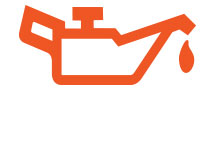
If this light stays lit it indicates loss of oil pressure. Immediately check oil level and pressure.

This symbol indicates that the vehicle’s overdrive system has been manually turned off. Typically the overdrive system is controlled by an on/off switch.
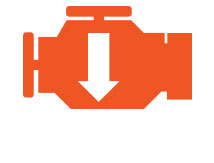
Indicates Engine Computer has limited engine power output. The ECM has many levels of reduced power depending on what component has failed in its control system. Usually requires diagnosis with a professional scan tool.
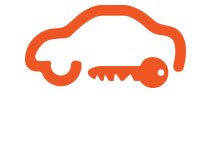
If the symbol lights momentarily it may mean that the ignition switch is locked and will need the proper transponder-equipped key to re-start. If the symbol is visible when the vehicle is on, then it typically indicates a malfunction in the security system.

Typically indicates a lighting or other electrical problem that is controlled by the BCM (body control module). Check all lights, headlights, turn signals, brake lights, and hazard lights. This symbol may also be used to warn driver of a traction control problem, or a communication problem between modules.
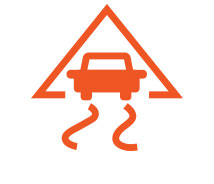
Illuminates when the vehicle’s traction control/anti-skid or electronic stability system is in use. Usually an indicator that conditions are slippery.
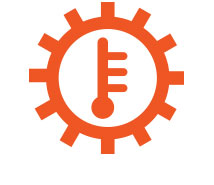
Transmission is operating at higher than optimum temperature as transmission fluid is hotter than normal. Check transmission fluid level and engine coolant level.

Indicates washer fluid is low. Fill washer fluid reservoir. The cap has a symbol that looks like a windshield. Some vehicles have separate reservoirs for front and rear window washers.
TPMS (Tire Pressure Monitoring System)

Indicates the tire pressure monitoring system has found a tire with low air pressure or there may be a sensor malfunction. Check tire pressure. Some vehicles will allow manual reset of TPMS warning light and others will require professional diagnosis. Refer to owner’s manual.
